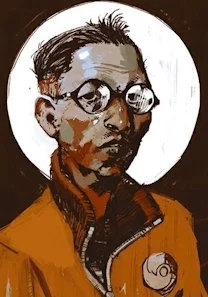How Jungian Psychology is Woven into the Persona Video Game Series
The Persona video game series, developed by Atlus, is renowned not only for its engaging gameplay and narrative depth but also for its rich incorporation of psychological concepts. Central to its thematic core is the influence of Carl Jung's analytical psychology. This essay explores how Jungian psychology is woven into the Persona series, analysing its characters, narrative structures, and symbolic elements to reveal a profound engagement with Jungian ideas. Drawing on peer-reviewed sources, we will examine Persona series, with its intricate blending of gameplay and deep psychological themes, exemplifies how Jungian concepts can be effectively integrated into modern storytelling mediums, offering not just entertainment but also opportunities for profound personal reflection and growth.
Jungian Archetypes in Persona
Jung's concept of archetypes refers to the universal, archaic symbols and images that derive from the collective unconscious. These archetypes are innate, universal prototypes for ideas and may be used to interpret observations. In the Persona series, characters and their corresponding personas often embody specific archetypal roles.
The Persona and the Shadow
In Jungian psychology, the persona is the social mask one wears in public, a façade to meet societal expectations, while the shadow represents the unconscious aspects of the personality that the conscious ego does not identify in itself. The Persona series literalizes these concepts by having characters summon personas—supernatural manifestations of their inner selves—to combat shadows, which represent repressed fears and desires.
For instance, in "Persona 4," each character's shadow embodies their repressed emotions and hidden truths, which they must confront and accept to awaken their true persona. Yukiko Amagi's shadow, for example, reveals her feelings of entrapment and desire for freedom, which she initially denies. Confronting and integrating these shadow elements is crucial for psychological growth, mirroring the in-game process where characters achieve self-acceptance and individuation by integrating their shadows into their conscious selves .
The Self and the Individuation Process
Jung's concept of the self represents the unification of the conscious and unconscious parts of the psyche, and individuation is the process through which a person integrates these disparate parts to achieve self-realization. The Persona series depicts individuation as a central theme, particularly through the narrative arcs of its protagonists.
In "Persona 5," the protagonist and his allies undergo a journey of self-discovery and empowerment, liberating themselves from societal constraints imposed by corrupt adults. This mirrors Jung’s individuation process, where the individual breaks free from the collective norms to realize their true self. This process involves a deep exploration of one's inner world and a reconciliation of various psychological elements, which is vividly illustrated through the game's metaphoric use of "palaces"—physical manifestations of the distorted desires of adults .
The Collective Unconscious and Shared Mythology
Jung posited that beneath the personal unconscious lies a deeper layer shared by all humans—the collective unconscious, which houses the archetypes. The Persona series taps into this idea by drawing on mythological and cultural symbols that resonate universally.
Mythological and Cultural Symbols
Personas themselves are often derived from mythological, historical, and literary figures, symbolizing the archetypal resonance within the collective unconscious. For example, in "Persona 3," the personas include figures such as Orpheus, a legendary musician from Greek mythology, and Thanatos, the personification of death. These symbols serve to connect the characters' personal struggles with broader, universally recognizable themes.
Moreover, the series frequently incorporates Jungian symbols such as the hero's journey and the quest for the self. The recurring motif of journeying into the "other world" or "cognitive palaces" in Persona games represents a descent into the unconscious to confront and integrate hidden aspects of the psyche .
Psychological Depth and Player Engagement
The integration of Jungian psychology in the Persona series not only enriches its narrative complexity but also enhances player engagement by resonating with deep psychological truths. The process of character development and self-discovery mirrors the player's own potential for introspection and growth.
Empathy and Identification
Players often form deep emotional connections with the characters, whose psychological struggles and growth reflect universal human experiences. As players guide characters through their individuation process, they are invited to reflect on their own shadows and personas. This dynamic fosters empathy and a deeper understanding of oneself and others, aligning with Jung’s belief in the therapeutic potential of engaging with archetypal stories.
Simply Put
The Persona series stands out in the realm of video games for its profound engagement with Jungian psychology. By weaving Jung's concepts of archetypes, the shadow, individuation, and the collective unconscious into its narrative and character development, the series offers players a rich, psychologically resonant experience. Through confronting their fears, accepting their true selves, and integrating disparate parts of their psyche, characters in the Persona series embody the Jungian journey towards self-realization—a journey that players, too, are invited to undertake.






